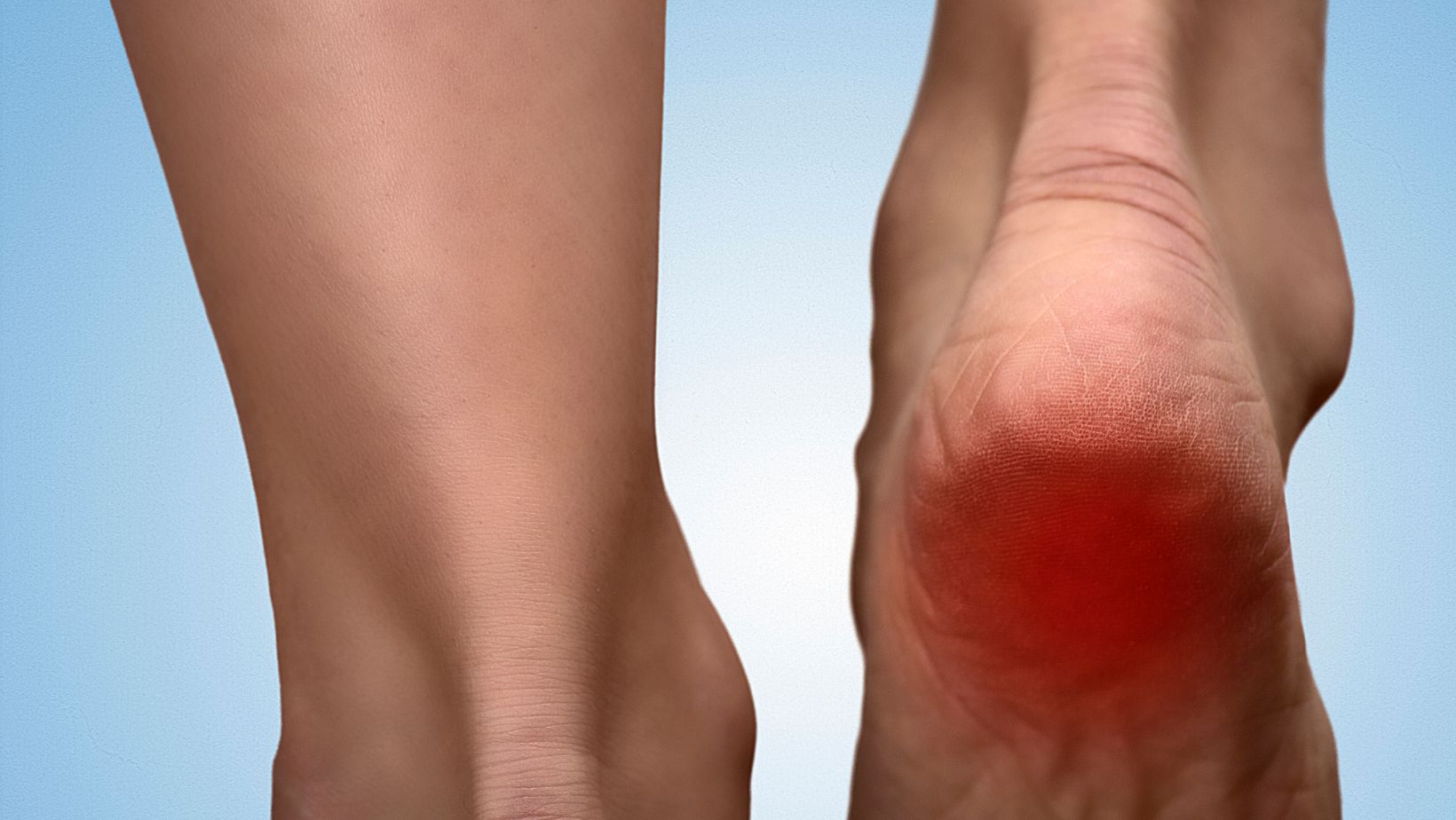Heel pain is a prevalent complaint, affecting people of all ages and activity levels. While most cases of heel pain are caused by common conditions such as plantar fasciitis or Achilles tendinitis, in rare instances, persistent heel pain may be a sign of a more serious underlying condition, including certain types of cancer.
This article delves into the potential link between heel pain and various cancers, helping you understand when to be concerned about your symptoms.
Uncovering the cancer connection: when heel pain raises a red flag
Although it’s uncommon for heel pain to be the first sign of cancer, there are some types of cancer that can cause pain in the heel area. These include:
Osteosarcoma
Osteosarcoma is a type of bone cancer that can develop in the heel bone (calcaneus). This aggressive cancer is more common in children and young adults but can occur at any age. Symptoms may include persistent heel pain, swelling, and limited mobility.
As the tumor grows, it can weaken the bone, leading to an increased risk of fractures.
Ewing’s sarcoma
Ewing’s sarcoma is another type of bone cancer that can affect the heel. This rare cancer typically occurs in children and young adults and can cause symptoms similar to osteosarcoma, such as heel pain, swelling, and difficulty walking. Ewing’s sarcoma can also cause systemic symptoms, such as fever and fatigue.
Chondrosarcoma
Chondrosarcoma is a type of bone cancer that arises from cartilage cells. While it’s more common in the pelvis, thigh bone, and shoulder blade, chondrosarcoma can also develop in the bones of the foot, including the heel. Symptoms may include pain, swelling, and a palpable mass in the affected area.
Synovial sarcoma
Synovial sarcoma is a rare type of soft tissue sarcoma that can develop in the soft tissues near joints, such as the ankle. This cancer can cause pain, swelling, and a noticeable lump in the heel area. Synovial sarcoma is most common in young adults and can be difficult to diagnose in its early stages.
Metastatic cancer
In some cases, heel pain may be a sign of metastatic cancer, which occurs when cancer cells from a primary tumor spread to other parts of the body, such as the bones of the foot. Cancers that commonly metastasize to the bones include breast, lung, prostate, and kidney cancer. Metastatic heel pain may be accompanied by other symptoms, such as unexplained weight loss, fatigue, and night sweats.
| Cancer Type | Description | Common Age Group |
|---|---|---|
| Osteosarcoma | Bone cancer that can develop in the heel bone | Children and young adults |
| Ewing’s sarcoma | Bone cancer that can affect the heel | Children and young adults |
| Chondrosarcoma | Bone cancer arising from cartilage cells, can develop in the heel | Adults |
| Synovial sarcoma | Soft tissue sarcoma that can develop near the ankle, causing heel pain | Young adults |
| Metastatic cancer | Cancer that has spread from a primary tumor to the bones of the foot | Adults |
What are the differences between cancer-related heel pain and benign conditions?
While cancer-related heel pain may mimic symptoms of more common conditions, there are some key differences to be aware of. Cancer-related heel pain tends to be persistent, progressive, and may not respond to conservative treatments like rest or physical therapy.
The pain may be more severe and can interfere with daily activities and sleep. Additionally, cancer-related heel pain may be accompanied by swelling, redness, or a palpable lump in the affected area, as well as constitutional symptoms like unexplained weight loss or fatigue.
When should I be concerned about my heel pain?
If your heel pain is persistent, worsening, or fails to improve with conservative treatment, it’s essential to consult your healthcare provider. You should also seek medical attention if your heel pain is accompanied by swelling, redness, a palpable lump, or systemic symptoms like fever, unexplained weight loss, or fatigue.
Early detection and intervention are crucial for improving outcomes, particularly in cases of cancer.
Can cancer-related heel pain be prevented?
While there’s no guaranteed way to prevent cancer-related heel pain, maintaining overall health and being aware of your body can help. Regular exercise, a balanced diet, and avoiding excessive alcohol consumption and smoking can lower your risk of developing certain cancers.
Promptly addressing any persistent or concerning heel pain can also lead to earlier detection and treatment of underlying conditions, including cancer.
While heel pain is most often caused by benign conditions, it’s essential to be aware of the rare possibility of cancer as an underlying cause. By understanding the potential link between heel pain and various types of cancer, you can take a proactive approach to your foot health and seek appropriate medical care when needed.
If you experience persistent, worsening, or concerning heel pain, don’t hesitate to consult your healthcare provider for a thorough evaluation.
